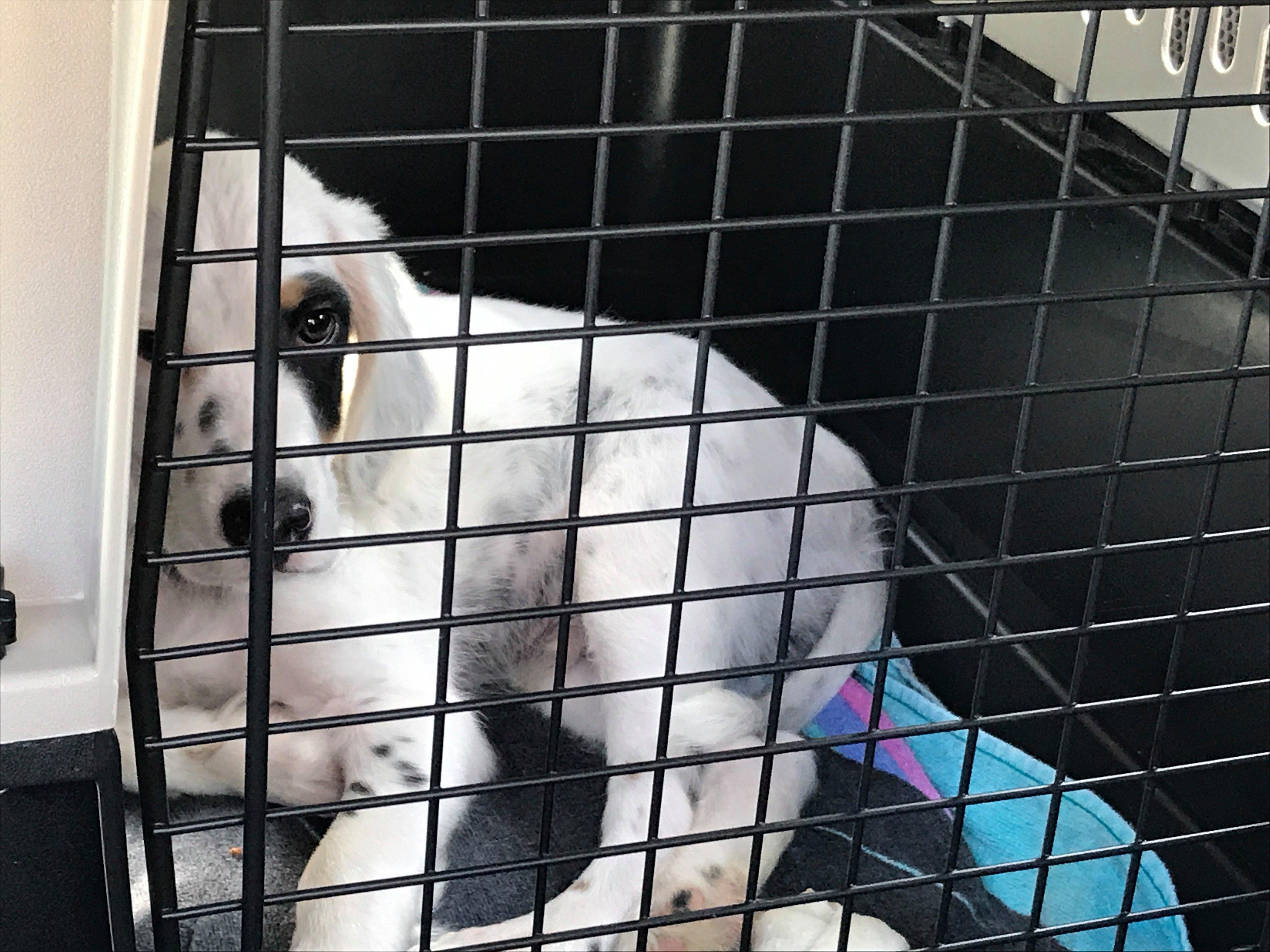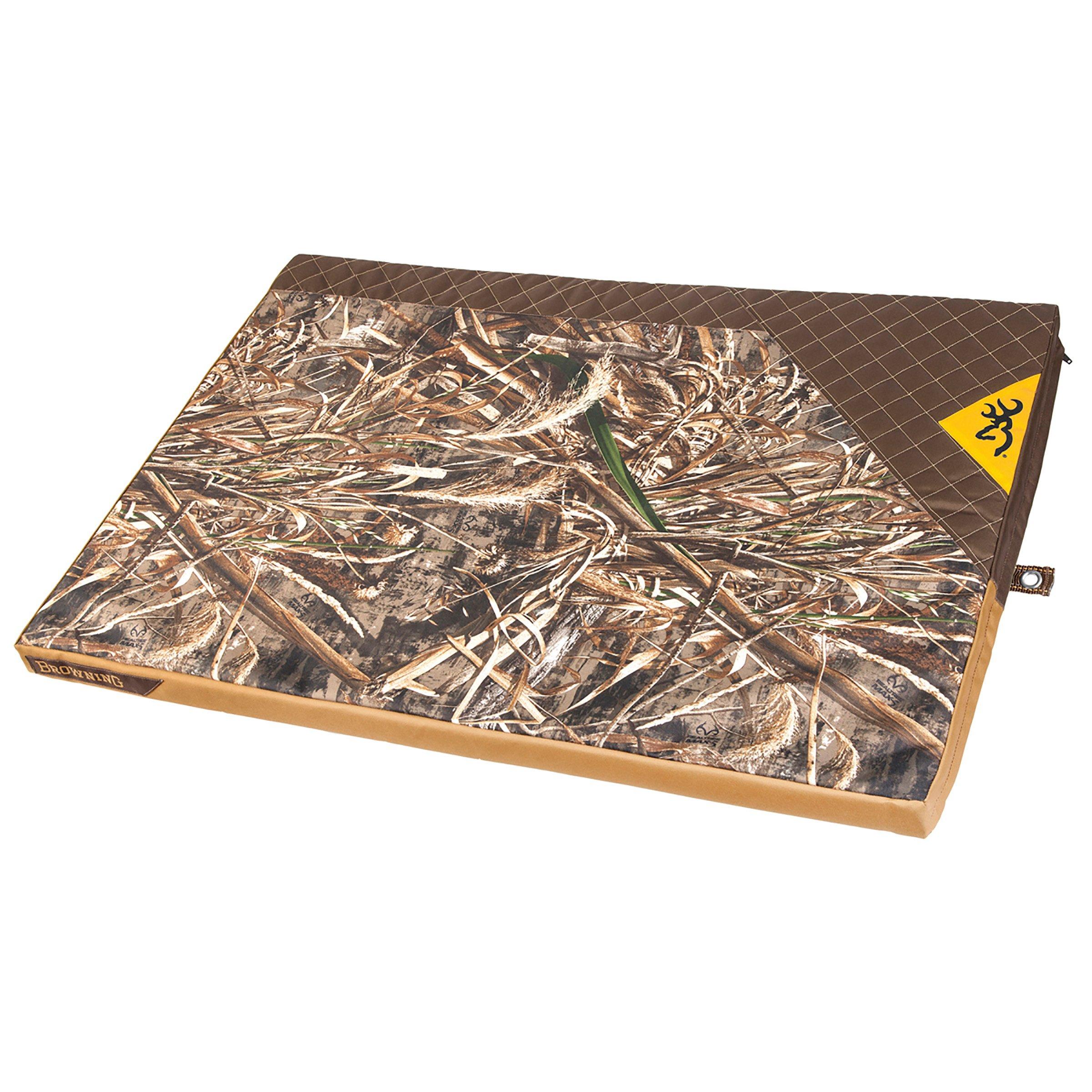Crate Training Puppies Takes Time and Patience
I've been around hunting dogs most of my life.
Nope, this doesn't make me an expert. I'm still learning, like all of you dog owners. That's the fun part.
My dad ran beagles, which I took care of being the oldest boy, and a dog lover from the start. We crated them on the way to hunt Pennsylvania cottontails - and yes, even grouse, woodcock and pheasants (several of the best even acted birdy on feathered game).
I've been around and hunted with Arkansas duck dogs. Texas pig dogs. Maine coyote dogs. Many others, including upland bird specialists.
Hunting dogs have made my life better, more enjoyable - especially the English setters I've owned over the past 20 years. It's from these puppies (and grown dogs) I've learned the most.
Time. Patience. You'll need a little bit of both. Some tips for how to crate train your hunting dog puppy follow here.
Repetition
Whether indoors or outdoors, most of your puppy's time should be outside the crate, bonding with you.
As crate training goes, keep it short and simple. Repeat the training effort by day and night. Kennel the pup in a crate, ideally on the floor, next to you in bed.
As you housebreak the dog, heading outside several times a night for that training ritual, return the pup to the crate right after. Console it verbally if needed, but don't take the pup out of the crate.
As things progress, put your pup in the crate when you need to greet the delivery person in the driveway or answer a phone call, etc. Do this for a short time in the beginning; increase the time little by little.
I often place an article of clothing with my smell on it in the crate to attempt this, and often it works. Be steady, consistent. Again, soothe the little rascal with your voice, which it'll begin to identify with you.
Eventually the pup will calm down and rest comfortably there.
And yes, at times the effort can be frustrating. You'll grow a bit weary. Take a deep breath. Stick with it.
To be honest, throughout the dog's life stages - from puppyhood to adulthood - you may crate the young dog, then later allow your aging canine hunting bud to ride safely in the backseat of your truck, window down with all those good smells rushing by.
That's your call, assuming it doesn't pose a safety hazard. As dogs age, they sometimes relax a bit more.
And heck, on long road trips, you need to talk to somebody. Dogs are great listeners.
Bonding/Training
Full disclosure: My late dad, like a lot of old-schoolers, believed hunting dogs were meant to be kenneled outside. He kept his beagles in a homemade but roomy, chicken-wire-and-wood kennel he'd built himself, with a hay-filled dog house up on short beams to keep it off the ground.
And yes, he bonded with his dogs in his own way.
We all hold our own individual beliefs as dog owners.
"Dogs kept indoors won't hunt. You'll spoil 'em." I grew up hearing this from other older dog men too, their belief dogs won't hunt if kept inside. And some still kennel theirs outside with this perspective in mind. It's not really for me to judge, but . . .
I respectfully disagree.
Mine do, have, will hunt. All of our English setters have lived inside with us. Fact is, I think (and I'm not alone) a dog living indoors with you - year-round - gives you endless opportunities to train a pup; especially crate training. Bonding matters.
And hunting seasons are never long enough. Your relationship with your dog (or dogs) is also plenty satisfying.
Hang out. Enjoy time outdoors and indoors. Praise good puppy behavior. Correct bad activity with a "no" or "leave it" command. And be consistent. And always try to lean toward the positive as you relate to your growing dog.
Training your pup will build the connection that will last you a lifetime together. But I digress . . . back to crate training.
Seven Quick Tips:
1. Crate training should never be overdone or used excessively. Keep sessions short as you start. Build on this.
2. Crate training is intended as a way to keep both you and your dog safe while traveling.
3. Crate training will be associated as "your dog's place" as you train a pup to do this.
4. Crate train with a "kennel up" command. Add "stay" to reinforce it. Follow with verbal praise.
5. Crate train with a comfortable dog mat (or soft bath towel) inside it. This can help the dog want to be there.
6. Crate training for travel varies widely. Some keep a crate inside the truck cab, others, in the back of their rig, under a truck cap. Some have high-end, expensive crate trailers.
7. Never punish a dog in a crate. It's intended to be a "good place" for them.
And always do the following . . .
Browning Dog Crate Mat in Realtree MAX-5
Rewards
Motivation helps to train dogs.
I use a medium-sized crate, safely placed in my truck's backseat, and on top of a flat dog bed which presents a nice, steady surface for balance. It's snug. It works.
The key is to reward the puppy (and dog) at the end of your ride.
If you go out to run errands, take the pup with you. Put it in the crate. When you're done, walk it on a lead. Run it in an open, field space. Time with you, outdoors, is often a strong desire for many dogs.
Put simply, my hunting dogs want to run, hunt. That's their reward. If the crate is associated with the end result of time outdoors, your crate training will go easier.
A quick treat before or after a ride in the crate can help too. Pay attention to what your puppy and dog wants.
And if it doesn't work, as might be the case, try these options . . .
Some put up partitions between the front and back seats; some use dog harnesses. Yep, you might have mixed results, because you know with dog training, nothing is always perfect.
And that's okay. Keep trying. Don't get frustrated.
Repetition, love - and a reward for the puppy at the end of a ride in a dog crate - are positive things for the dog and its owner when all works out. Often, it does.
Go here for more Realtree small game hunting stuff. Follow us on Facebook.
Editor's note: This Realtree.com post was first published August 8, 2017.









